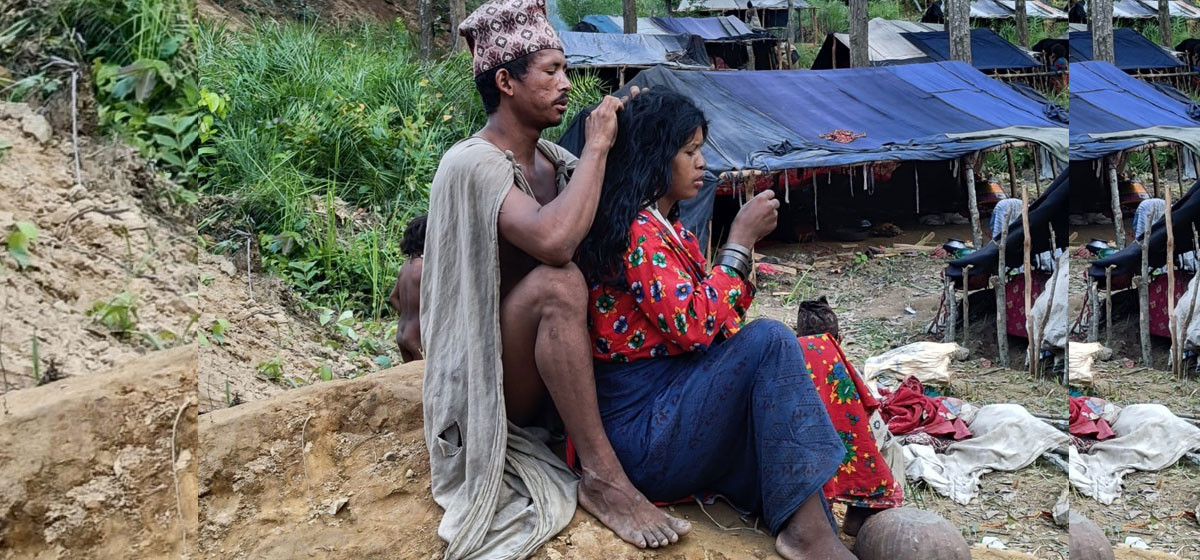SURKHET, Sept 1: “When a girl becomes part of your family through marriage, you must love her and respect her wishes, just as you would do for your sister or daughter,” said Bir Bahadur Shahi, a leader of the Raute community, in response to a question about whether disputes arise between husbands and wives in their community. “In our community, we never raise our voices at women.”
During a recent visit to a Raute settlement, Dil Bahadur Shahi was busy building a house, cutting and erecting wooden pillars, while his youngest son helped by chopping one of the posts.
When asked about his son seemingly dismantling the work, he replied with calm patience: “He’s just a boy; he doesn’t understand yet. He will learn when he grows up. One post being cut is not a problem—there are plenty of trees in the forest to use another one.”
Integrated policy to be introduced for Raute Community

These everyday moments reveal how the Raute treat women and children with respect. To outsiders, the Raute may appear male-dominated—women rarely speak directly to strangers, and men often step forward. But within the community, women hold full authority over decisions and control economic resources.
The government provides a monthly social security allowance of Rs 4,000 for the endangered Raute community. As temporary residents of Dailekh, Guras Rural Municipality handles the distribution. Some households receive up to Rs 100,000 at a time. “We collect the money from the government and give it entirely to the housewife,” said young Raute member Prakash Shahi. “If anything needs to be bought from the market, the wife manages the expenses.”
The Raute do not settle in one place, practice agriculture, or read and write. Yet even when relocating, they carefully choose sites convenient for women. Men hunt, craft wooden utensils, and sell them, while women manage water collection, cooking, and household chores.
“When the settlement is far from water sources, it troubles the women,” said young member Khagendra Shahi. “We move the settlement so water is easily accessible.”
During the Hari Tale Tihar festival, Hira Singh Thapa could be seen grooming his wife Bange Shahi’s hair. “If the husband doesn’t take care of his wife, who else will?” he said. “It’s a man’s duty to comb her hair and look for lice. Sometimes, mothers also help with their daughters’ hair.”
Durga Khatri, a teacher with SoSEC Nepal who has worked with Raute for eight years, noted zero violence toward women and children. “I have neither witnessed nor heard of husbands and wives, or men and women, raising their voices or engaging in disputes,” she said. “Even when children make mistakes, they are never beaten or shouted at.”
The Raute community consists of three clans (Gotra): Kalyal, Swavanshi and Raskoti. One leader from each clan liaises with outsiders, but in all other matters, women are the decision-makers. “From economic rights to food decisions, from relocating settlements to building houses, women make all the decisions,” Khatri added.





































